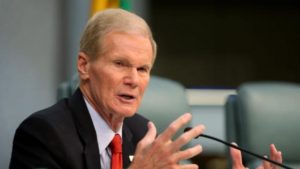“Reducing the size of government and eliminating bureaucracy will reduce the regulatory burden in the state, spur economic development and get Floridians back to work,” Scott said back then.
Now, in a time of surplus and sustained growth, Scott is seizing an opportunity to embrace the other half of his political philosophy. If you have extra money, spend it.
All of this, of course, is being done with eyes toward a 2018 senatorial run against three-term Democratic U.S. Senator Bill Nelson.

Scott is unlikely to draw any primary opponents, which gives him the wiggle-room he needs now to cede from his strict fiscal-hawk reputation. His goal is to appeal to a broader electorate, like the ones that got Nelson and his counterpart, U.S. Senator Marco Rubio, elected to statewide office.
The best indicator of what the Florida electorate is thinking is the results of the 2016 election. Not between Trump and Clinton, but rather Rubio vs. Patrick Murphy. In that race, Rubio won by nearly 8 points against a fairly typical Democrat who is similar, in many ways, to Nelson.


